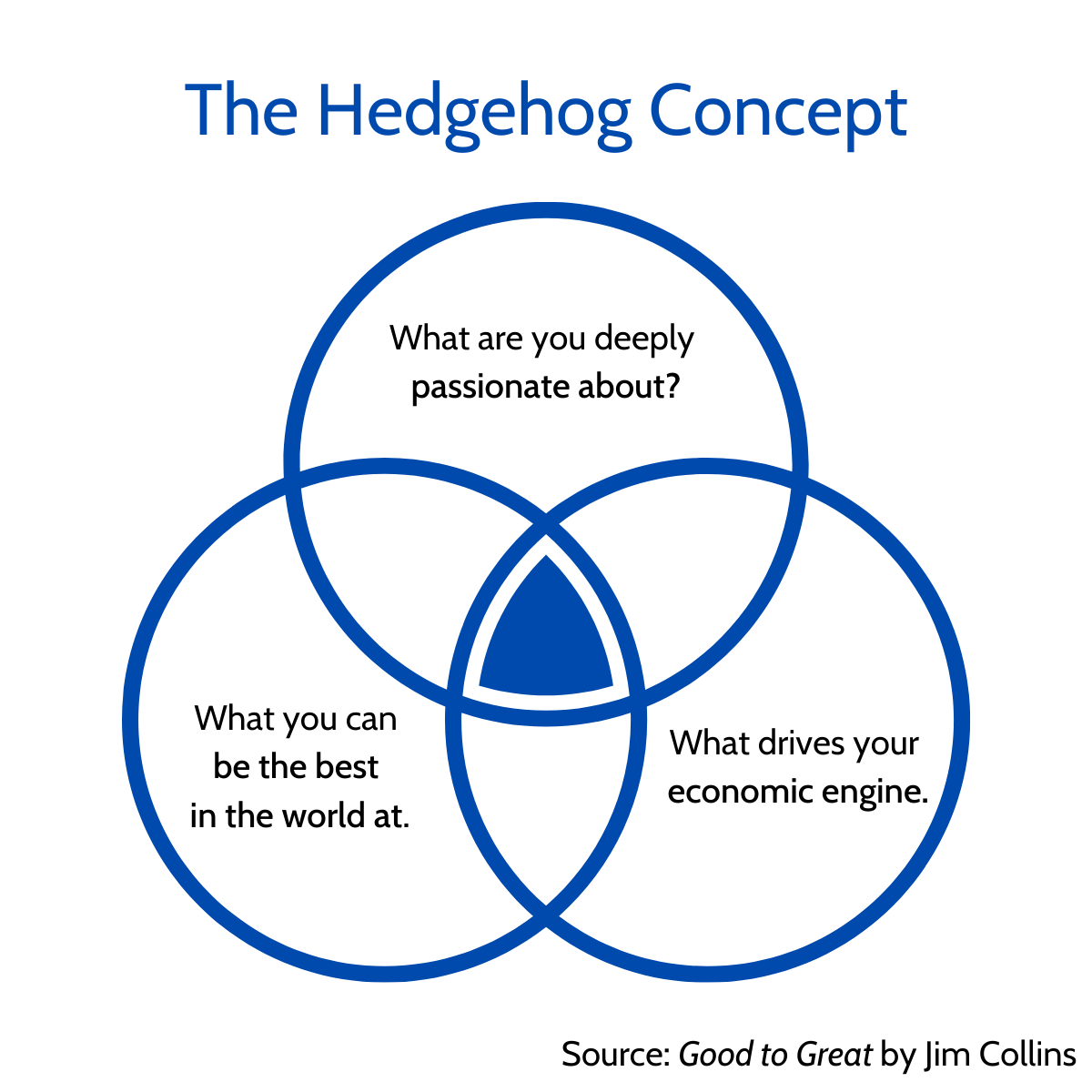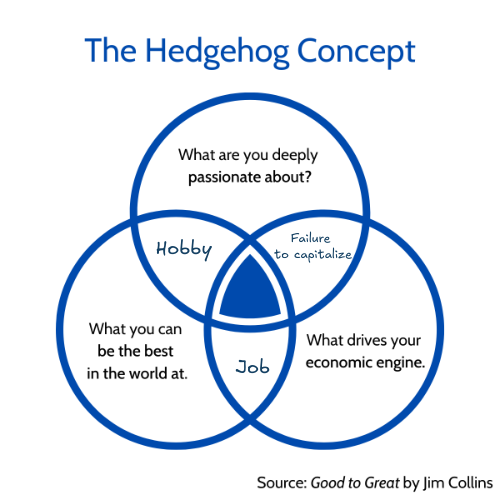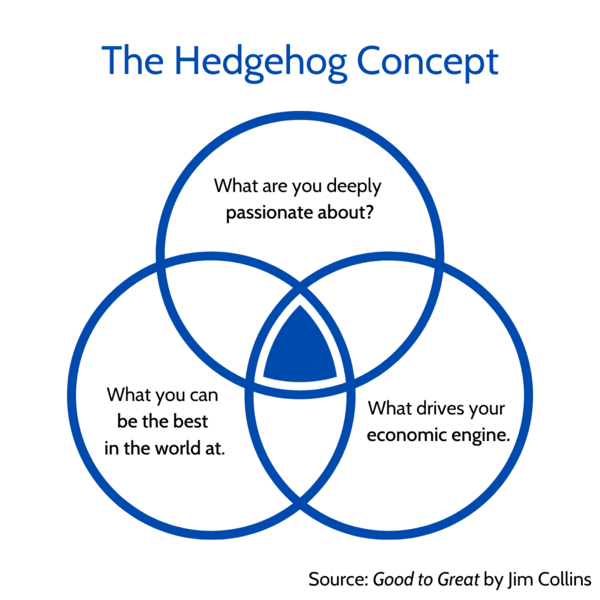“Alignment beats achievement. Every time. Too many high performers land jobs they’re perfect 𝘧𝘰𝘳 but not perfect 𝘪𝘯. They hit goals, win awards… and slowly burn out inside.”
- Brian D. Matthews (linkedin)
Introduction
Recently, I was discussing the next step in my career with a colleague. He asked me:
“What do you think your passion is?”
Then he shared the above quote with me. Brian is a mentor of his, and he said that he thought of me when he read Brian’s post.
I thought about this for the entire day that followed. About the profoundness of Brian’s message, my colleague’s question about my passion, and the fact that he thought of me and my professional situation through it all.
It bothered me that I didn’t have an answer at the top of my mind. I realized how stuck I felt. How I couldn’t even articulate clearly what I wanted out of my career. So, I took the time to reflect on it and distill my passion into one simple sentence:
I am passionate about solving problems with technology.
I, of course, have other passions. I love my family, I like music, and I’m obsessed with good coffee. I enjoy watching true crime series and a good drama with a ‘Stephen King’ style plot twist. But, my professional passion is solving problems with technology. In order for me to feel fulfilled in my career, I need to be solving problems with technology.
At this point, I revisited Brian’s quote… I took the time to think about whether my passion is aligned with my recent achievements – with what I’m actually doing in my career.
Many people will find themselves in a role they’re great at. They might be meeting the objectives set by their supervisor. They might be producing results for the organization. And, most likely, they are incredibly valued by their organization because of this. They are needed in the areas they perform well in.
But…
Are they aligned with what they’re doing? Do they find the work meaningful? Does it excite them? Are they passionate about it?
Don’t just follow your passion
Mike Rowe, the guy from the Discovery channel series Dirty Jobs, has long campaigned against following your passion. This sounds harsh, but I wholeheartedly agree with his mindset.
Let me explain…
The way I see it, there are three variables involved in following your passion:
Interest
Plenty of things can be a passion in the traditional sense. A passion is simply something that gets you excited; something that you’re interested in and you like doing. You might be interested in a bunch of different things: programming, architecture, running, coffee, music or underwater basket weaving.
Opportunity
Opportunity is the likelihood that the pursuit of that interest as a career will be fruitful; it’s the likelihood that you can make a living by doing it. Money isn’t everything, but eating is pretty important. Providing for yourself and for your family is important.
Ability
Ability is your aptitude to do the thing. How good are you at this? Would someone pay you to do it?
All of this to say: you need a high level in all three of these categories to pursue your passion as a career and be successful doing so.
Before I got into tech, one of my biggest passions was coffee. I had purchased a very expensive espresso machine and became quite a snob for good beans and brewing methods. The opportunity for a career in coffee, however, is pretty low. And my skill as a barista was mediocre at best. I had high interest, but low opportunity and low ability. Even if I had won the World Barista Championship (yep, it’s a thing), I would have never left Active Duty service to pursue being a full-time barista.
The Hedgehog Concept: when you should follow your passion
So when should you follow your passion?
Jim Collins describes a concept in his book, Good to Great, known as the Hedgehog Concept. This concept is based upon a 1953 essay titled The Hedgehog and the Fox by Isaiah Berlin which cites an ancient Greek poem by Archilochus:
“The fox knows many things, but the hedgehog knows one big thing.”
The idea is this. The fox is sly and cunning. Every day it comes up with a new plan to attack the hedgehog. One day it creeps up from behind a bush. The next day it climbs a tree and pounces from above. But, no matter what the fox does, no matter what his strategy is today… the hedgehog has one, perfected strategy: to ball up and present his quills. The fox gets poked (again) and goes back to the drawing board (again).

Companies that become great are like the hedgehog. They find the one core competence that they can be the best in the world at, and they consider anything else a distraction. Finding that core competence requires, what collins calls, the intersection of the three circles, by answering three questions:
- What can you be the best in the world at?
- What drives your economic engine?
- What are you deeply passionate about?
Collins uses this to describe how businesses go from good to great. But I think the same concept can be applied to individual careers. Finding your own personal Hedgehog Concept will tell you when it’s time to follow your passion.
Intersecting the three circles
In finding your personal hedgehog concept, you’ll need to answer these three questions for yourself. And I would argue that they should be asked and answered in this order. Intersecting only one or two of the three circles will put you in a drastically different position than if you can get all three. The intersection of the three circles is your Hedgehog Concept.
What can you be the best in the world at?
First, you need to figure out where your talents lie. What is something that, with the right amount of focus, you could potentially be the best at? This doesn’t meant that you’re already the best, or even good at it yet. Being the best is not necessarily the focus or even the goal. But if it’s something that you know, based on the unchanging facts of the universe, that you will never be standing at a global awards ceremony for, then it can’t be your Hedgehog Concept.
Here’s an example: I have played chess before. I know the rules of the game and how the pieces move. But, when I do play, I don’t win a lot. I’m also far beyond the prime age to start taking chess seriously. Most chess grandmasters began playing competitively at a very young age. Magnus Carlsen began around the age of eight. Therefore, I know for a fact that no matter how hard I practice or study; I will never be the highest ranking chess grandmaster in the world. Magnus Carlsen would still wipe the floor with me.
This is, of course, entirely subjective. The above statement is my own opinion. But it’s important that you be deeply honest with yourself. Consider what it would look like if you left everything behind to put every ounce of your energy and every waking hour of your life into being better at this particular thing. Under those circumstances, could you be the best in the world? If the answer is no, it’s not your Hedgehog Concept.
Again, to be clear, this does not mean that in order to follow your passion, you should follow it with that level of intensity. Doing so would sacrifice other priorities like your family or your health and I am not advocating for that. This is just a frame of reference to clearly indicate whether or not the thing is worth pursuing.
What drives your economic engine?
This one is pretty simple. Does it make you money? Can it make you money? Does anyone make money doing this? Consider the economic opportunity of this thing as a career. In a world where you are expertly qualified for this job right now (and hey, maybe you are), how difficult would it be to land that job and put a roof over your head and food on the table?
Let’s say you’ve determined that music is something you could be the best in the world at. You have a natural talent, a natural rhythm, people tell you that your singing voice is fantastic and that the songs you write are beautiful. What’s the likelihood, even under these circumstances, that you can make a living doing this? The music industry is deeply subjective and hard to break into, so it’s probably low.
This doesn’t mean that you should stop making music, it just means that it doesn’t make sense to pursue professionally. It’s a hobby. Maybe one day the right amount of money starts rolling in from it, or the right person hears your music and offers you a big contract with a record label. But until then, dropping everything to pursue music full-time doesn’t make sense.
What are you deeply passionate about?
Finally, the question of passion. Do you like doing it? Are you interested in it? Does doing the thing energize you? Even if you’ve found something that you can be the best in the world at, and that same thing has an opportunity to be lucrative… if you’re not excited about it, then it isn’t your Hedgehog Concept. Even worse, if it’s something that drains your energy or if it’s something that you dislike, then it most certainly is not your Hedgehog Concept.
Intersecting fewer than three circles

Once again, you need to intersect all three circles in order to find your Hedgehog concept.
If you’re passionate about it, and you can be the best at it, but it doesn’t make you money… then it’s a hobby.
If you can be the best at it, and it makes you money, but you’re not passionate about it… then it’s just a job. A job in which you may be achieving but in which you are not aligned.
If you’re passionate about it and it brings in money, but deep down you know you’ll never be the best in the world at it, then you are missing out on an even more fulfilling opportunity. This isn’t a bad position to be in, but if you want to reach your full potential, you still have some searching to do to discover your Hedgehog Concept.
When to move on
After some deep reflection, I find myself intersecting only two of the three circles. I’m in a career that, given the right amount of energy, I could be the best at. It also makes me decent money. But, I’m just not passionate about it.
I’m passionate about the things I do on the side. Doing projects in my homelab gives me energy. The technical side-projects at work excite me. The seldom, deeply technical discussions I have at work bring me momentary fulfillment; a fleeting relief from my regular duties which mostly just drain my energy.
In my current role, all of these things are nothing more than additional duties. I’m not solving problems with technology in the Army. Doing so is a side project, a side hustle, or a personal project. Other, deeply non-technical scopes of responsibilities are what consume my priorities, even while holding the title of Data Systems Engineer. The non-technical things are where I’m valued by my organization. And, although I may be great at those things… they’re not my passion. I’m not aligned with my role in the Army anymore. I’m perfect for it, but I’m not perfect in it.
It’s time for me to move on. It’s time for me to take my family home. It’s time for me find a role where I’m solving problems with technology.
It’s time for me to follow my passion.
Conclusion
So, if you’ve identified your Hedgehog Concept, how do you know when it’s time to move on?
My opinion is: immediately. Don’t waste any more time. The companies that went good to great treated everything that wasn’t their Hedgehog Concept as a distraction. You need to do the same.
Begin seeking opportunities that align with your Hedgehog Concept now. If you find that you aren’t competitive for those roles yet, then begin upskilling. Study, practice, train and seek mentorship from people who are in that role already. All the while, shooting your shot at those roles. If it’s truly your Hedgehog Concept, it won’t be long before you land one.
